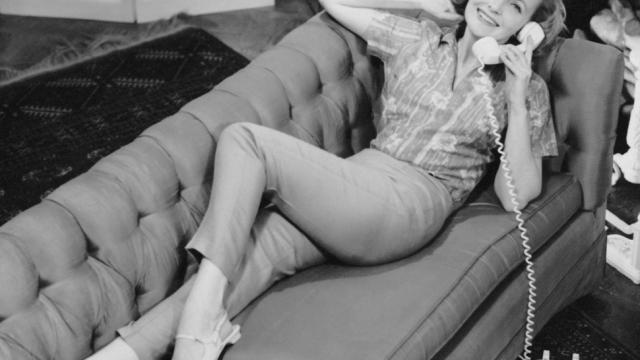50 years ago, the most revolutionary technology of the future was supposed to be the telephone — thanks to some high-tech upgrades just over the horizon, of course. At least that’s what the phone companies kept telling us.
Advancements like the videophones and dial-a-libraries weren’t just supposed to make the world feel that much smaller and more connected. New telephone tech was supposed to deliver unto Americans a wondrous life of leisure. Just push a telephone button, and the world itself would conform to your every need and desire.
The March 27, 1964 edition of the Neosho Daily in Missouri explained to readers just what that life of leisure might look like. They spoke with a manager at Southwestern Bell, who for the most part seemed to be pulling his ideas straight from a 1962 cartoon produced by Bell Labs.
Excerpted from the Neosho Daily:
Foreseeing more leisure time for people of 2000, [Southwestern Bell manager, R.L.] Davidson predicts that communications facilities of that time will give us more effective ways to use that time to good advantage.
The average person of the year 2000 will be better educated than he is today since many of today’s routine jobs will be replaced by jobs requiring advanced education and training.
“The better educated he is,” Davidson said, “the better equipped he is to appreciate art, literature, music and other fields of interest.”
“His communications facilities will help him to enjoy and learn more about these things. He will be able to call the library, read books and consult reference materials by picture phone without leaving his home.”
The article insisted that people of the mid-60s were already seeing hints of this leisure society that was to come. Automatic appliances were ostensibly making life easier for millions of people who no longer had to toil away cooking or cleaning for hours at a time.
These efficiencies in the home, futurist-thinkers insisted, would leave the people of tomorrow with time to do whatever they pleased.
Again, from the Neosho Daily:
“Even today we see the use of leisure developing. The housewife, freed from many of her chores by better appliances, takes night courses in Karate and spot welding. The businessman finds time to study astronomy, home economics and Zen Buddhism.”
“Machines are doing more of the routine jobs. Some persons have wryly predicted that machines will take over the world — machines that think, talk to each other and reproduce themselves.”
As we’ve looked at many times before, the life of pushbutton leisure that was promised at midcentury has yet to arrive. The three-hour workday of George Jetson is even more laughable today than it was in 1962.
Just as new advancements in cleaning technology during the 20th century were simply met with an evolving standard of cleanliness, so too have our productivity gains been eaten up by a demand for more things to be produced; more of our working minutes accounted for.
The telephone didn’t deliver on the leisure society that we were promised. But in fairness, neither did any other appliance.
